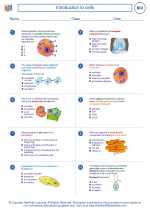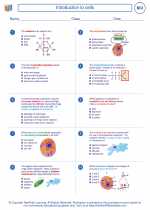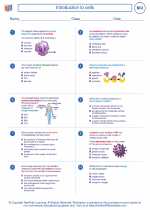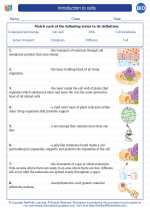Roundworms
Roundworms, also known as nematodes, are a type of unsegmented worm that belong to the phylum Nematoda. They are found in a wide range of environments, including marine, freshwater, and terrestrial habitats. Some roundworms are free-living, while others are parasites of plants, animals, and humans.
Anatomy of Roundworms
Roundworms have a cylindrical body with a tough, flexible cuticle that covers their body. They have a complete digestive system with a mouth and an anus. Some species have specialized structures such as hooks or teeth to aid in attachment to their host in the case of parasitic roundworms. They also have a simple nervous system and reproductive organs.
Life Cycle
The life cycle of roundworms varies depending on the species. In general, most roundworms go through a process of molting as they grow. They can reproduce sexually or asexually, and some species have complex life cycles involving intermediate hosts.
Ecological and Economic Importance
Roundworms play important roles in various ecosystems. They contribute to nutrient cycling and decomposition processes. However, some species are economically important as they can cause diseases in plants, animals, and humans. For example, the parasitic roundworm Ascaris lumbricoides can cause the disease ascariasis in humans.
Study Guide
- What are roundworms and to which phylum do they belong?
- Describe the anatomy of roundworms, including their body structure and digestive system.
- Explain the life cycle of roundworms and the variations that exist among different species.
- Discuss the ecological and economic importance of roundworms, highlighting their role in ecosystems and their impact as parasites.
- Choose a specific species of roundworm and research its biology, ecology, and impact on the environment or human health.
◂Biology Worksheets and Study Guides High School. Introduction to cells

 Worksheet/Answer key
Worksheet/Answer key
 Worksheet/Answer key
Worksheet/Answer key
 Vocabulary/Answer key
Vocabulary/Answer key
 Vocabulary/Answer key
Vocabulary/Answer key
 Vocabulary/Answer key
Vocabulary/Answer key
 Vocabulary/Answer key
Vocabulary/Answer key
